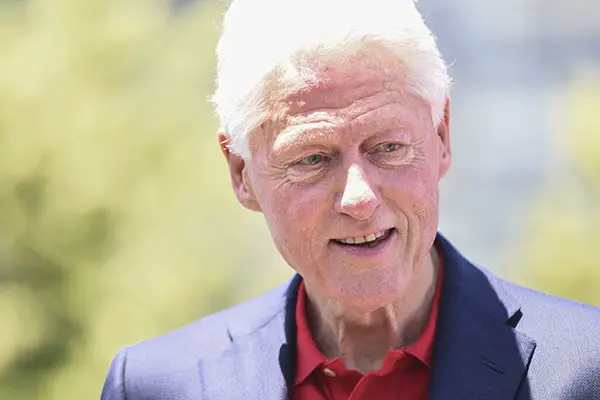Former President Bill Clinton, widely regarded as a skilled orator and one of the most popular presidents in modern history, appeared on MSNBC’s “Morning Joe” to discuss the state of American democracy. Clinton, whose presidency concluded with a 66% approval rating, focused on the growing distrust Americans have in their institutions. “People are losing faith in the institutions, and in many, many places, they’re going to reward the people that destroyed their faith,” he warned, striking a sobering tone that underscored the challenges of the current political climate.
Clinton also shared a note of optimism. “I wouldn’t bet against America,” he said confidently. “So far everybody that’s bet against us has lost money.” Yet his appearance carried a deeper weight, given Clinton’s history with controversies that have shaped the political and media landscapes of today.
During the interview, Clinton reflected on the 2016 election, expressing concerns about the media’s focus on Hillary Clinton’s email controversy. He remarked that the mainstream media’s emphasis on the email scandal overshadowed policy discussions, describing the coverage as “not just unfair; it was destructive.”
Clinton’s comments highlight the significant impact that media coverage can have on public perception and electoral outcomes. The extensive focus on the email controversy during the 2016 campaign has been a subject of analysis and debate, with some arguing that it played a pivotal role in shaping voter opinions.
Clinton also critiqued the timing of Vice President Kamala Harris’ entry into the 2024 race. He noted, “She became a candidate at a time when no one else could legally access the money that had already been given to Joe Biden, and there was no time to have primaries.” This situation, Clinton implied, may have further fueled disillusionment among voters who felt sidelined by the process.
Bill Clinton’s tenure, despite its achievements, was not without significant controversies. From the Monica Lewinsky scandal that led to his impeachment to the criticism over policies such as the 1994 crime bill and the repeal of the Glass-Steagall Act, Clinton’s administration remains a study in contrasts.
Clinton’s appearance on MSNBC coincided with the promotion of his book, “Citizen,” which delves into the challenges facing modern democracy. In the book, he candidly addresses his regrets, including his association with financier Jeffrey Epstein. Clinton expressed profound regret over having met Epstein and firmly denied allegations that he had visited any of Epstein’s properties.
As the nation struggles with questions of institutional integrity, Clinton’s observations serve as both a reflection of his time in office and a commentary on the political landscape he helped shape. Despite his controversies, he remains a compelling voice, urging Americans to reclaim trust in the institutions he once led.











